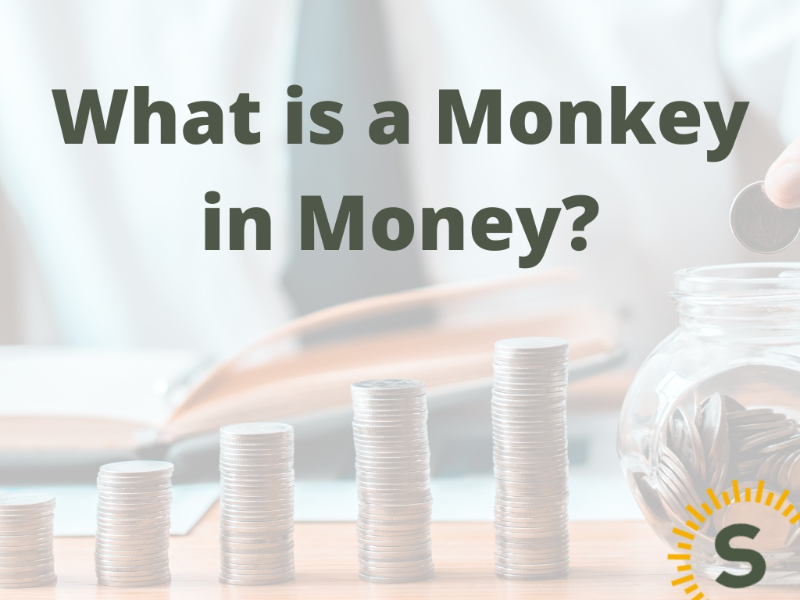
Have you ever wondered what "monkey in money" means? This article dives into the origins and significance of this peculiar phrase. Let's explore its history, understand its relevance, and shed light on how it is used in today's financial world.
In finance, "monkey" is slang for £500 in the United Kingdom. Back in the 19th century, the Bank of England featured animal illustrations on its banknotes, and the £500 note had a monkey on it. Over time, people started using "monkey" to refer to that specific amount of money.
The "monkey in money" phrase has made its way into popular culture, appearing in books, movies, and songs. The monkey symbolises financial abundance, mischief, and cleverness, adding meaning to the term. This cultural significance helps keep the phrase alive, even as cash usage decreases.
Beyond its numerical value, the term "monkey in money" carries cultural significance and symbolism. The monkey, known for its intelligence, mischief, and agility, has become synonymous with financial abundance and cleverness. In popular culture, references to monkeys and money often evoke notions of wealth and opportunities for financial gain. This cultural symbolism helps maintain the phrase's resonance and ensures its continued usage, even as digital payments and cashless transactions dominate the modern financial landscape.
The term "monkey" in the context of money is derived from the Indian 500 Rupee note of the 19th Century, which featured a monkey on one side. As the British Empire's control of India deepened, phrases and terms from the Raj made their way to the shores of Britain. Although the Indian 500 Rupee note has long since replaced the monkey with other designs, the phrase "monkey in money" has stood the test of time in British slang.
★★★★★ 4.5
While "monkey in money" predominantly refers to £500 in the United Kingdom, it is essential to recognise that slang terms can vary across regions. In other parts of the world, such as India, "monkey" may have different meanings or be associated with alternative denominations. Slang evolves within specific cultural contexts, reflecting the unique linguistic nuances and historical influences of each region.
Within financial discussions, the phrase "monkey in money" serves as a casual and convenient shorthand for referring to £500. Finance professionals and enthusiasts use this slang term to simplify communication and convey a specific monetary value quickly. It enhances efficiency and fosters a sense of camaraderie amongst those well-versed in the financial domain. The shared understanding of the phrase creates a bond and facilitates smoother exchanges of ideas and information within the finance community. Additionally, it underscores the importance of understanding the language and terminology used in financial contexts to navigate discussions effectively.
Yes, the term "monkey" in the context of money has its origins in Cockney slang for money. Cockney rhyming slang is a form of coded language used by the Cockney community in London. It involves substituting a word or phrase with a rhyming phrase, typically using the second word of the rhyming phrase to represent the intended meaning.
In Cockney rhyming slang, the term "monkey" is used to represent £500. The full phrase associated with it is "monkey and a pony." Over time, the term "monkey" has become the more commonly used shorthand for £500, while the association with a pony in money is not always explicitly mentioned.
The origins of specific Cockney rhyming slang terms are often difficult to trace precisely, as the language has evolved organically over time. However, the creativity and playfulness of Cockney rhyming slang have contributed to its enduring presence and influence on the broader English language.
While money slang offers a colourful addition to everyday language, it's important to remember that these terms might not be universally understood. What makes perfect sense in one country or region might be completely baffling in another. For example, asking for a 'monkey' in a bank outside the UK might earn you some strange looks!
The phrase "monkey in money" encapsulates the intersection of language, finance, and culture. Its origins as slang for £500, combined with its cultural symbolism and practical usage, make it a fascinating element of the financial lexicon. By unraveling the meaning and origins of "monkey in money," we gain a deeper appreciation for the nuanced ways in which language and money intersect. Understanding this phrase, along others such as a ton of money and a score in money, enriches our comprehension of financial discussions and highlights the importance of familiarity with financial slang in effectively communicating within the finance realm. So, the next time you come across the term "monkey in money," you'll have a greater understanding of its significance and historical context.

Stuart is an expert in Property, Money, Banking & Finance, having worked in retail and investment banking for 10+ years before founding Sunny Avenue. Stuart has spent his career studying finance. He holds qualifications in financial studies, mortgage advice & practice, banking operations, dealing & financial markets, derivatives, securities & investments.





Our website offers information about financial products such as investing, savings, equity release, mortgages, and insurance. None of the information on Sunny Avenue constitutes personal advice. Sunny Avenue does not offer any of these services directly and we only act as a directory service to connect you to the experts. If you require further information to proceed you will need to request advice, for example from the financial advisers listed. If you decide to invest, read the important investment notes provided first, decide how to proceed on your own basis, and remember that investments can go up and down in value, so you could get back less than you put in.
Think carefully before securing debts against your home. A mortgage is a loan secured on your home, which you could lose if you do not keep up your mortgage payments. Check that any mortgage will meet your needs if you want to move or sell your home or you want your family to inherit it. If you are in any doubt, seek independent advice.